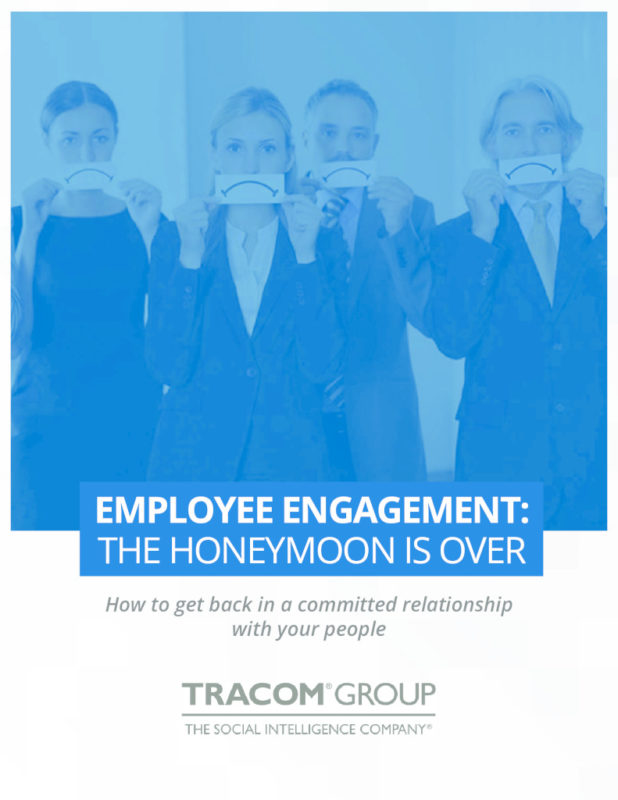Organizational commitment to employee engagement can be a roller coaster. When employee candidates are plentiful, organizations many talk a better engagement game than they deliver. But when hiring is a challenge, organizations may do more to foster engagement. Organizations with a long-term vision for success understand that employee engagement is built through a vision and execution of that vision. This whitepaper looks at the benefits of engagement and practical suggestions for generating employee engagement. It specifically addresses how social intelligence training generates outsize benefits.
The Cost of Engagement
Employee engagement is critical to success and organizations are spending more than ever on engagement programs. In a study performed by Gallup, 66% of employees are not engaged and due to this lack of engagement 51% are actively searching for new jobs or watching for openings. Given that employee turnover is expensive and disruptive, organizations should be doing all they can to enhance engagement and keep valued employees.
TRACOM’s Resilience and SOCIAL STYLE Training
Resilience training helps enhance engagement by showing people how to recognize and overcome their Negativity Bias. They do this by challenging their automatic negative thoughts, and finding more productive ways to think and act during difficult times. This alters their mindset and behavior, helping them to maintain a sense of control over events. Instead of feeling paralyzed, they feel empowered, regaining control over their mindsets and actions. The course is of special benefit to leaders since it teaches them strategies that help their team to be more resilient, and also how they can model resilience and engagement.
SOCIAL STYLE training helps people become aware of their own behavior and how they are perceived by others. They learn about their natural strengths and how this helps in teams. They also recognize their shortcomings and how these can impede their performance and effectiveness with other team members. Critically, they learn how to recognize the SOCIAL STYLEs and strengths of other team members, and how to communicate with them in ways that lead to understanding and acceptance. This helps teams to be more effective and more collegial, which improves engagement.
Social Intelligence and Engagement
Levels of engagement are low for most organizations, and the pace of change has the potential to make employees even less comfortable and secure. Now, more than ever, organizations should be anticipating not only the changes on the horizon but how these changes will affect the motivation of their workforces. The most progressive companies proactively increase engagement; by offering programs that educate people about their cognitive biases and teach behavioral strategies to mitigate these. These Social Intelligence skills create an engaged and productive workforce. Socially Intelligent teams, companies, and individuals face the same challenges as others, but they are equipped to think, act and react in more effective ways.

 New Horizons
New Horizons
 Project Management Academy
Project Management Academy
 Six Sigma Online
Six Sigma Online
 TCM Security
TCM Security
 TRACOM
TRACOM
 Velopi
Velopi
 Watermark Learning
Watermark Learning
 Login
Login

